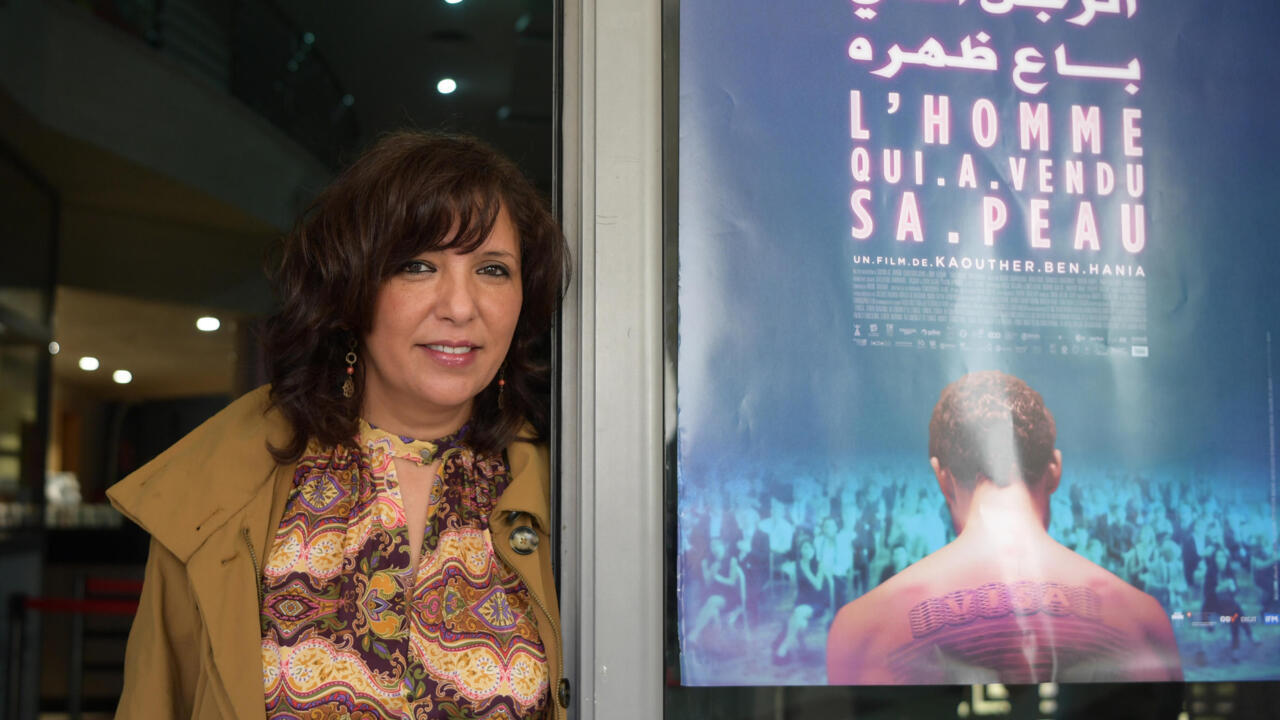Tunis (AFP)
It is a confusing political fable with a sophisticated aesthetic: "The man who sold his skin", the first Tunisian film selected for the Oscars, follows a Syrian arriving in Europe at the cost of a Faustian pact making him a work of art. living art.
For her third feature film, Tunisian director Kaouther Ben Hania ventured outside her native country, plunging happily into two contrasting universes: that of refugees and that of contemporary art.
Sam Ali, a young Syrian in love, finds himself a refugee in Lebanon without being able to join the woman of his life in Europe, for lack of documents.
While playing the picnic in art galleries, he is offered the long-awaited visa by an artist who wishes in exchange to tattoo it on his back and exhibit it.
The story is partly inspired by that of Tim Steiner, a young Belgian who sold the artist Wim Delvoye the right to tattoo, to exhibit punctually and then to recover the skin of his back after his death.
Shot in France, Belgium and Tunisia, the film - which comes out Wednesday in Tunisia, April 2 in the United States where it is in the running for the Oscars awarded on April 25 - is above all a dive into the world of contemporary art in Europe.
The director takes up the codes in her images with polished colors and lights, with worked photography, while emphasizing its cruel absurdity and that of a whole system that lets objects travel more easily than men.
- "Contemporary hero" -
Neither really drama, nor really comedy, the film alternates between a squeaky and tender tone, never desperate, but never completely optimistic.
The Italian actress Monica Bellucci, in "false blonde" who wants to "hide her Middle Eastern origins", blows hot and cold.
The Syrian actor Yahya Mahayni, a sweet dreamer in love with freedom who comes up against a pillar of the system as a whole youth in Syria has done since 2011, oscillates from happiness to anger.
"I was tired of the victim discourse on refugees," explains Kaouther Ben Hania.
"My intention from the start is to make him a contemporary hero, who comes out on top and turns the adventure to his advantage"
"In total dispossession of his body" during the film, "he ends up regaining possession," she continues.
The characters "look like me, taken to the extreme".
Like the Syrian refugee, "I was faced with paperwork problems to go to France: as Tunisians, we all have to deal with these visas".
Like the artist of the film, "I reflect my work to the extreme".
Her first three creations, including "La belle et la meute" on the epic of a young girl seeking justice after a rape, or "Zeineb does not like snow", a documentary on the exile of a Tunisian teenager , have all been awarded.
But this Oscar nomination, the first for a Tunisian film, "it's huge", recognizes Ms. Ben Hania, who nevertheless regrets the lack of institutional support for cinema in Tunisia.
"The man who sold his skin" was co-produced by 25 international partners - France, Tunisia, Belgium, but also Sweden, Germany and Qatar.
Raising the budget of 2.5 million euros was "a priesthood", explains Nadim Cheikhrouha, one of the co-producers, stressing that the project had almost collapsed in March 2020 for lack of funds.
If this large co-production brought its share of complications, "certain constraints ultimately served the film", he underlines.
They made it possible to recruit a German cinematographer - "an incredible meeting" - and to gain access to the Royal Museum in Brussels "which had a Wim Delvoye retrospective".
But "The man who sold his skin" has fewer means to promote himself than his competitors at the Oscars, some of which are backed by the American distributor HBO, regret the producers who nevertheless remain optimistic.
Mrs. Ben Hania hopes that this nomination will make it possible to make her next films "a little more easily".
She intends to soon realize a film "on the edge of genres" between documentary and fiction, on which she has been working since 2016.
© 2021 AFP

